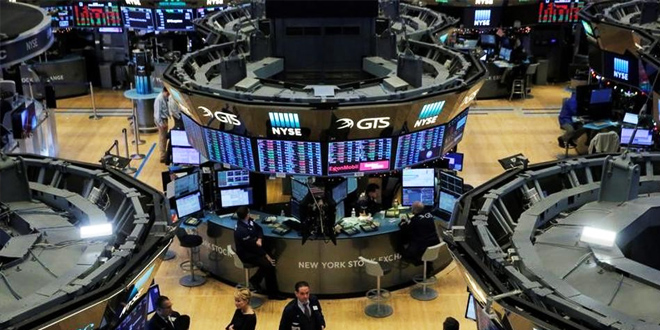Two –Americans are in team of eight individuals charged with deceptive trading practices on commodities markets in the US. It case of spoofing an illegal trading practice that can be used to manipulate the commodities markets.
Jitesh Thakkar 41, of Naperville, Illinois has been charged in criminal complaints with conspiracy and spoofing offences along with other six. As per charge sheet Thakkar allegedly developed a software programme that was used by Thakkar’s co-conspirator to engage in spoofing through the placement of thousands of orders on the CME when Thakkar was the founder and principal of Edge Financial Technologies Inc. (Edge), an information technology consulting firm located in Chicago.
The other one charged Indian-American is Krishna Mohan, 33 of New York have been charged in criminal complaints filed in the Southern District of Texas with commodities fraud. Mohan is charged with commodities fraud and spoofing offences when he was employed as a programmer and trader at a proprietary trading firm in Chicago. According to the complaint, data analysis identified that Mohan engaged in a pattern of spoofing over a thousand times in a two-month period.
While other than the individual identified only three others have been publicly charged with the crime of spoofing, of those identified five were traders employed by global financial institutions, two were traders at large commodities trading firms and one was the owner of tech consulting firm reported as per Justice Department. It was said that defendants and their co-conspirators are alleged to have defrauded market participants and manipulated these markets by placing hundred and in some cases thousands of order that they did not intend to trade or Spoof order to create the appearance of substantial false supply and demand and to induce other markets participants to trade at prices quantities and time that they otherwise would not have traded.
As on Monday charges announce aggressively targets, among other things, the practice of spoofing which was allegedly employed in various forms by these defendants and their co-conspirators to manipulate the market for futures contract traded on the Chicago Mercantile Exchange (CME) the Chicago Board of Trade (CBOT) and the Community Exchange Inc. With accordance to the changing documents the spoof orders often had the effects of artificially depressing or artificially inflating the prices of futures contracts traded on CME, CBOT and COMEX as source said in the Hindu.
“Spoofing is a particularly pernicious example of bad actors seeking to manipulate the market through the abuse of technology,” said Director James McDonald of the US Commodity Futures Trading Commission’s (CFTC) Division of Enforcement. In which artificial ground to buy prices manipulates markets with selling at high stake, Spoofing is a way of manipulating the market with the use of technology. The Criminal Division Fraud Section’s Securities and Financial Fraud Unit, the U.S. Attorney’s Office for the District of Connecticut, in conjunction with special agents from FBI Offices in New York, Chicago, Connecticut, and Houston participated in the enforcement along with other agencies. They manipulated the market by allegedly placing thousands of orders they didn’t intend to execute. They executed genuine orders to make a profit from the price fluctuations created by their spoof orders.
“As alleged, the defendants in these cases engaged in sophisticated schemes or trading practices aimed at defrauding individuals and entities trading on U.S. futures exchanges,” said Acting Assistant Attorney General Cronan. “Conduct like this poses significant risk of eroding confidence in U.S. markets and creates an uneven playing field for legitimate traders and investors,” he added. The Department and our law enforcement partners will use all of the tools at our disposal, including cutting-edge data analysis, to detect these types of schemes and to bring those who engage in them to justice. Protecting the integrity of our markets remains a significant priority in our fight against economic crime” as per market reports in US media.
 India One News
India One News





